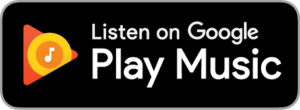
Episode 141: The Magnetic Proof Accelerator: Why You Need This
Proof is important online today because there are so many people who make big promises but don’t deliver the goods. So people want to know you’re the real deal before they invest with you.
Back in episode 137, I talked about how online gurus create fake urgency, fake testimonials and fake demand for each other’s products based on their pay-to-play models.
Don’t do that.
Instead, I work with clients and students to create and accelerate their magnetic proof. The goal you and I need to have for our work is to gather powerful proof in the form of REAL results, REAL testimonials and REAL-LIFE examples.
Why?
People KNOW you’re going to make big promises and say great things about yourself. They automatically trust what you say much, much less than if they hear it from a client or a friend, or weirdly, even a stranger in a Facebook group.
There are countless statistics that show a large majority of consumers read reviews before making a purchase. You want to make sure you have social proof to back up the value and effectiveness of your products or services, because most people ARE going to do some homework on your business before they buy.
As a result, you need someone outside of your business who can vouch for you. Who can say “YES, this person/business is LEGIT and they can get you results.”.
In fact, I did a whole podcast series on Robert Cialdini’s persuasion pillars. Knowing the persuasion pillars will help you purposefully gather magnetic proof.
In general, you’ll find six types of social proof, but the great news is that you do not need all six. You can hone in on one or two that make the most sense for yourself, but you’ve got to be focused on gathering and sharing social proof in a way that makes your potential buyers more interested in buying.
I love to use social proof in my marketing funnels. Stories, examples and videos from real clients and customers are my best source of getting people to decide to buy from me.
 Here are six types of social proof, and how you can start gathering this information TODAY.
Here are six types of social proof, and how you can start gathering this information TODAY.
#1. Expert Social Proof
This is when a well-known expert in the industry recommends your product or service. Imagine Martha Stewart recommending a food processor. Like her or not, you know Martha Stewart will ONLY recommend things that have passed her very high bar for all things homemaking. So you’d trust it. But if she was recommending a cruise or a specific model of car, you’d probably question that endorsement because it’s not as relevant.
You and I probably won’t have much expert social proof starting out, and that’s ok. It’s just one of six types, so you can find another one that works better.
#2. Celebrity Social Proof
Think Kardashians — when they recommend something, their fans typically flock to buy it. Or think Nike athlete endorsements.
Yes, you and I are likely not competing in this space yet, although you never know. A few years back I had a client, Foundation Training. The founder created a way to do back exercises that celebrities LOVED and often spoke about. So whatever your business is, be on the lookout for those serendipitous times that a celebrity loves what you do and shares it for free.
#3. User Social Proof
This is my favorite type of social proof because it doesn’t require an enormous budget. It just requires doing good work for my clients. This is where mini offers really can help too.
When I wanted to pivot away from doing only 1:1 work and I wanted to create my course that eventually turned into Build Your Funnel Bootcamp, I KNEW I had a big hole in my marketing because I didn't have any testimonials about my course.
So instead of letting that hold me up, I created a bunch of little mini offers to test a piece of what I wanted to put in my course AND also create great user testimonials. The people who purchased my mini offers LOVED the value that they got and happily gave me testimonials and examples.
In fact, mini offers worked so well that I tell ANYONE looking to do a new offer to test pieces of that offer first through mini offers. Those testimonials will help sell your course better than any fancy sales copy.
#4. The Wisdom of the Crowd
This type of social proof is when a lot of people are talking about you and recommending you. This is the type that the deceptive gurus use in the Syndicate-type pay-to-play masterminds, basically creating a FOMO reaction for anyone not in the program.
I don’t think there’s anything wrong with people recommending you or me, but we want to grow those recommendations organically and not falsely manipulate people by creating shady pay-to-play groups where we all promote each other.
#5. The Wisdom of Your Friends
This type of social proof is the best type of proof out there. Think about it: how likely are you to buy something your friend — a person you trust — recommends to you?
We just got a new puppy and as we were getting ready for his arrival, I asked a few of my dog-crazed friends for recommendations on everything from food to trainers to harnesses to toys.
And what they recommended, I bought. Why? Because I trust them and if they say it works well for them, that’s good enough for me.
#6. Certification
This type of social proof comes from a well-known authoritative figure in your industry. For example, if Twitter gives you a blue check-mark, people know you’re not a bot.
(I’m still waiting for my checkmark.)
Anyway, this is a good way to align yourself and prove you’ve got the industry chops. I know copywriters who get certified in the Copyblogger method. I personally have a certification from The Coaches Institute, the Kellogg School of Marketing, HubSpot and many others. They’re a good way to stand out and stay up-to-date.
This is also where guest blogging and/or guest podcasting on other people’s platforms can come in handy. Being featured or being a contributor isn’t necessarily a ‘certification’ but it does let you align yourself with the trust and authority they’ve built up over time.
Create Profit Without Worry – one system at a time. I’ll show you how to attract a steady flow of buyers without all the hustle with this free download → 5 Steps To Profit Without Worry.
Links mentioned in this episode:
- Article: The Real Reason Proven Marketing Formulas Have Stopped Working
- Connect on Facebook
- Connect on LinkedIn
- Connect on Instagram



